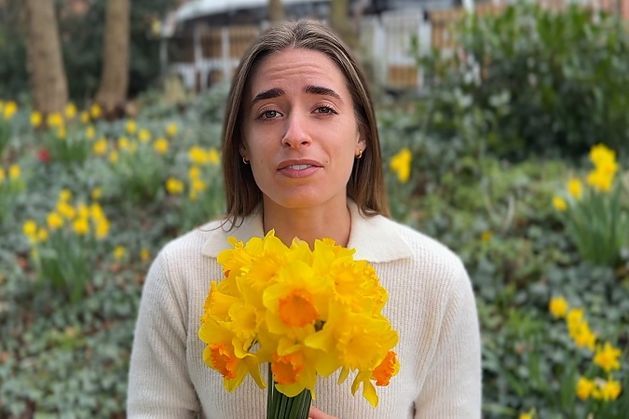Daffodil Day: 'I think the hardest part for me was losing my hair ...

When Ireland international Chloe Mustaki was diagnosed with cancer at just 19, she had captained her country to a European Championship semi-final just weeks before.
The Bristol City player, now aged 28, shared her story for Daffodil Day, reflecting on the experience a decade on from receiving a diagnosis for Hodgkin lymphoma.
She had just returned home from Norway with the Ireland under-19 squad in 2014 when she visited her GP for a routine appointment.
“He called me back within 24 hours and said, ‘Something has come up, I’d like you to come in for a follow-up set of tests’. Things escalated pretty quickly from there. I got a chest X-ray and I got my diagnosis within a couple of weeks,” said Mustaki, who was born in Ohio, but moved to Ireland with her Irish mother when she was young.
“It was hard to wrap my head around it because I had just captained my country to the European semi-finals in the weeks before. I was totally floored in the sense that it was completely unexpected.
“But I had such a great support system around me, and after a few days of a lot of tears I managed to wrap my head around it a bit more and get geared up for what my body was about to endure.
“I was able to shut down the importance of everything else. When you’re faced with something like that, nothing else really matters.”
Chemotherapy was difficult, and she made the decision to step back from college and competitive football to focus on her recovery.
“It was a really tough six months in terms of what my body went through with the treatment,” she said. “When it was over, I was able to kind of regain somewhat of a normal life as a 19-year-old. I’m one of the lucky ones. I didn’t have to have any further treatment after those six months.
“Looking back on it, I think the hardest part for me – and one of the main effects of my treatment – was losing my hair. When you’re a 19-year-old girl, all of those changes to your body, that was probably the hardest thing for me.
“I didn’t really mind taking a temporary break from everything in terms of college and football because it’s life or death. You don’t really have a choice.
“Losing parts of yourself in that way, in terms of your appearance, that’s hard. I’ll always look back on that time and think, ‘I don’t know how I dealt with that so well’. Like having to get my head shaved – one of my best friends came with me – and then the tears after.
Chloe Mustaki represented Ireland at last summer's World Cup finals. Photo: Sportsfile
“Wearing wigs and having short hair when I went back to play football and all those things that I took in my stride... I’m proud of myself for having just got on with it.”
Mustaki, who was part of Ireland’s Women’s World Cup squad last summer, knew she would return to football, but didn’t know how long it would take or what level she would get back to.
“It will live with me for the rest of my life. Initially, when I finished treatment and I got the all-clear and I was able to gradually build back into football, I just felt free,” she said.
The first few months of “readjusting into college life and trying to balance the stresses of college with being back in competitive football” were hard, Mustaki said.
She also had to see a psychologist to work on processing her diagnosis, her treatment and the aftermath.
“I was getting back into trying to be a normal teenager who was trying to succeed in different areas of life, but actually also trying to come to terms with everything that happened,” she said.
Mustaki wants to share her own story to raise awareness, helping others who may have a loved one going through a similar experience, or those who might have received a diagnosis themselves.
She has urged those currently going through illness to keep their support network close.
“The best advice I got when I was going through my treatment was that people experience bumps along the road in their lives – some more that others, no doubt – but everyone experiences highs and lows at some point in their life and, as my auntie put it to me back then, unfortunately, I had experienced this low in my life quite early on.
“That was a great piece of advice because there was no point in asking myself ‘Why me?’ in all of this. There was no point being in that mental head space – I just needed to get on with it.”
The Irish Cancer Society’s Daffodil Day takes place today. See cancer.ie to donate











































